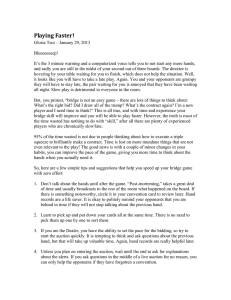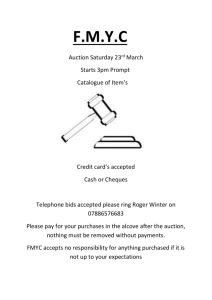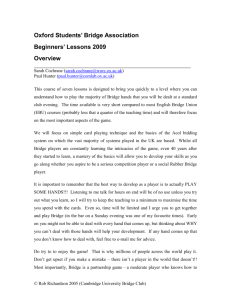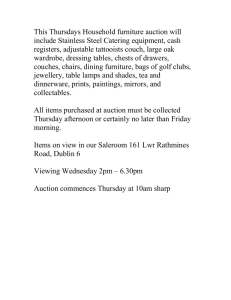Laws of bridge - West Coast Bridge Club
advertisement
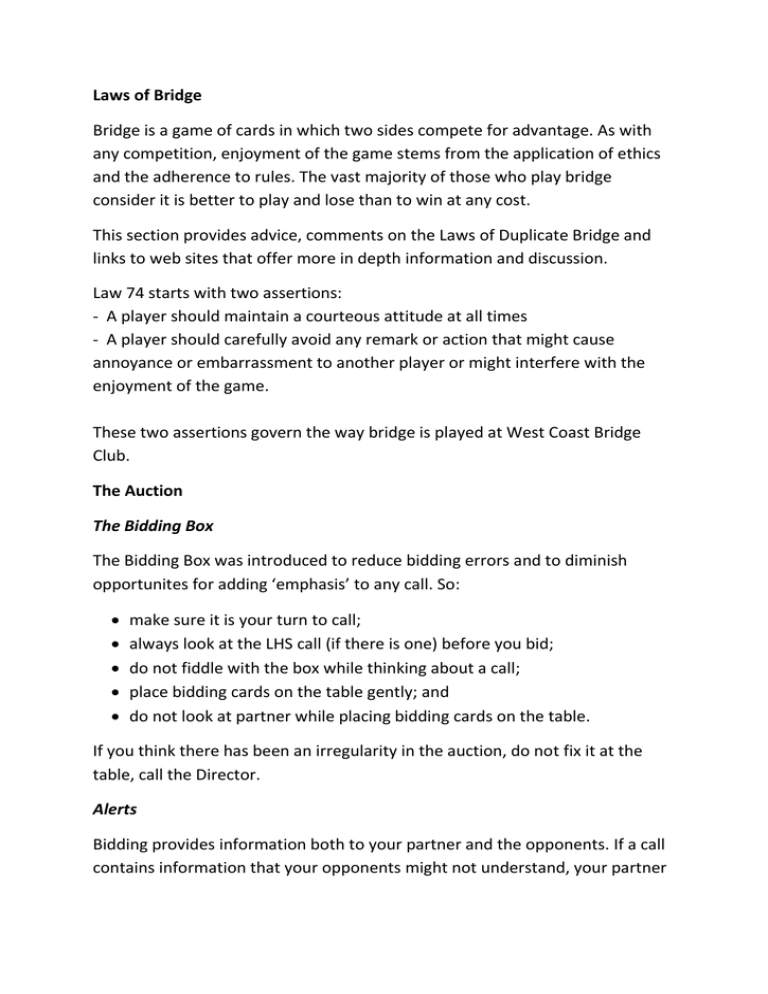
Laws of Bridge Bridge is a game of cards in which two sides compete for advantage. As with any competition, enjoyment of the game stems from the application of ethics and the adherence to rules. The vast majority of those who play bridge consider it is better to play and lose than to win at any cost. This section provides advice, comments on the Laws of Duplicate Bridge and links to web sites that offer more in depth information and discussion. Law 74 starts with two assertions: - A player should maintain a courteous attitude at all times - A player should carefully avoid any remark or action that might cause annoyance or embarrassment to another player or might interfere with the enjoyment of the game. These two assertions govern the way bridge is played at West Coast Bridge Club. The Auction The Bidding Box The Bidding Box was introduced to reduce bidding errors and to diminish opportunites for adding ‘emphasis’ to any call. So: make sure it is your turn to call; always look at the LHS call (if there is one) before you bid; do not fiddle with the box while thinking about a call; place bidding cards on the table gently; and do not look at partner while placing bidding cards on the table. If you think there has been an irregularity in the auction, do not fix it at the table, call the Director. Alerts Bidding provides information both to your partner and the opponents. If a call contains information that your opponents might not understand, your partner must bring this to the attention of your opponents using the Alert Card. Raise the card and say the word ‘Alert’. Examples include: a specific but not obvious point count; transfer calls; information about an additional not mentioned suit; jump bids, cue bids in opponent’s suit, 2C after 1NT rebid by opener; Pre-alert when you sit at the table where your system significantly differs from ‘Acol with 4 card majors’. If you think there has been an irregularity in alerting, do not fix it at the table, call the Director. During the auction when it is your turn to call you may ask about an opposition call whether it was alerted or not. You should not ask if you intend to Pass anyway. Auction Review At the end of the auction, the person on lead may ask for a complete auction review before playing the opening card face down on the table. They may not ask the meaning of only one call. The partner of the player whose turn it is to lead may ask for a complete auction review once the opening card has been placed on the table or else indicate that there are no further questions. The declarer may ask for a full review of the auction, but only at their first turn to play. If you think there has been an irregularity in the auction review, do not fix it at the table, call the Director. Play Bridge is a timed game. Playing too slowly gives you an advantage over all other players, and thus is unacceptable. Mistakes in card play such as playing out of turn or a revoke will not occur if you remember to pay attention to the cards actually being played. Discussion of the bidding or play of a particular hand at the table during a round is not recommended. It takes time and it may easily be heard at another table, thus providing the players there with Unauthorized Information. During play: you can only change designation (card in a suit) if the original card was unintentionally played; you cannot change designation because you did not look at an already played card; a card called for from dummy is a played card; once declarer holds or places a card in a position of a played card, it is played; do not hesitate unduly if you only have a singleton in that suit; you cannot start playing a hand if there are less than 2 minutes left on the clock. If you think there has been an irregularity in the play, do not fix it at the table, call the Director. More Information More information is available from: English Bridge Union Alerting Regulations Bidding Regulations Bridge Laws Guidance
